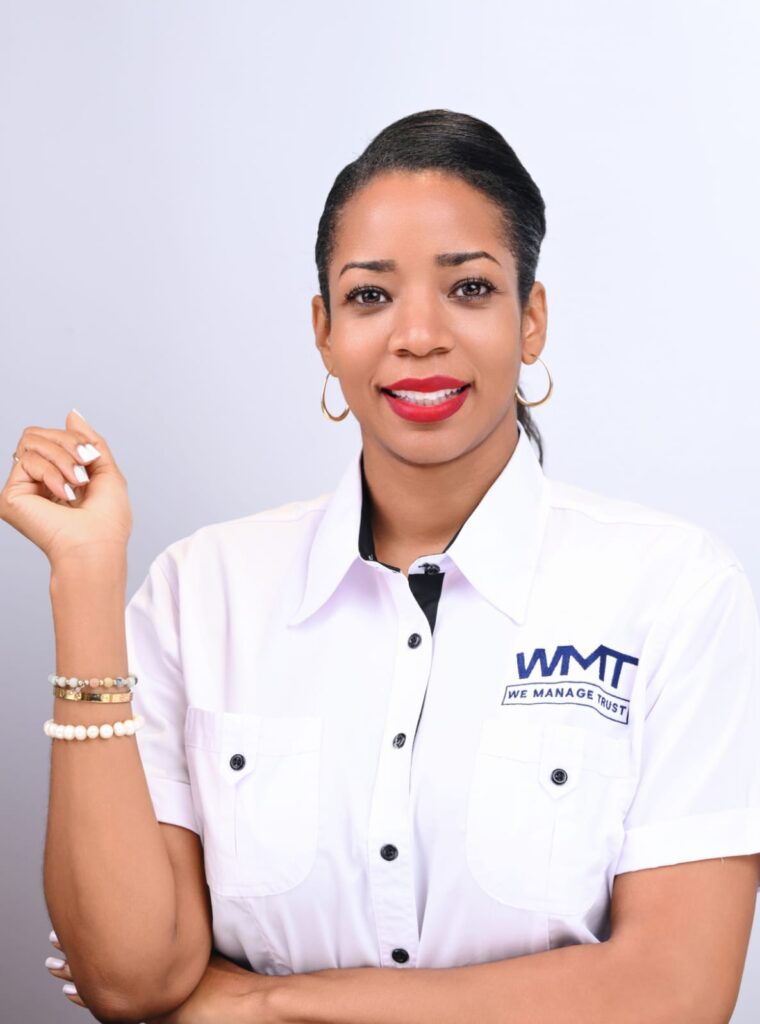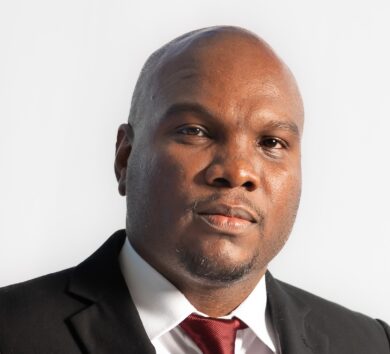

We Manage Trust founder and CEO Kashta Graham has been using lessons learned from her own experiences tied with the expertise of other experts to guide organisations on how to protect their personal data and achieve compliance with the Data Protection Act.
Born and raised in Kingston, Graham’s early years were shaped by the strong support system she received from her parents and the early lessons she garnered at Immaculate Conception High School.
She completed her studies in politics and international relations at the University of Westminster in London, before returning home to Jamaica for her sojourn in the project management field.

She was inspired to make the transition to STEM after an incident where her Jamaican bank account was compromised while she was travelling abroad in the UK. Graham says that although her funds were eventually recovered, the trauma and vulnerability she felt throughout the incident made it clear to her the importance of securing one’s private information.
After discovering how pervasive vulnerabilities were throughout the business sector at the time, she returned to school to further her education in information security. She completed her ISO/IEC 27001 certification, a world-class standard for information security management systems (ISMS) and the data protection course at the Mona School of Management and Business at The University of the West Indies (UWI), Mona.
While still operating as a project manager, she spearheaded the process of compliance with the Data Protection Act for other companies. Following her experiences from her time working in project management, she teamed up with lawyers, cybersecurity specialists and privacy analysts to launch the data protection and data privacy firm We Manage Trust.

When asked about guidelines for achieving compliance with the act, Graham said: “Firstly, perceive compliance with the Act as a journey and not a sprint because for any programme, no matter the company, it will need to be adjusted as the company evolves and grows.”
She explained that with that understanding, the next step is to conduct a gap analysis.
“As a global best practice, the next step is to conduct a gap analysis by a knowledgeable, data protection service provider who can help them identify their risks and vulnerabilities and help them establish a data compliance programme that is tailored to the company,” she added.
“This will also assist with establishing the foundation of your data protection compliance programme as it maps all your personal data processing activities and outlines all the issues that need to be addressed to achieve compliance,” she continued.
Responding to questions about common issues that companies face, Graham said most of the issues she has experienced stemmed from companies misunderstanding, or underestimating the technical work required for a thorough gap analysis as well as the benefits in efficiency and trust that can be built with customers by becoming compliant.

She said the analysis, when done correctly, can save organisations money in the long run. Graham explained that in a bid to cut costs, companies often incorrectly task the process to their IT staff. However, she pointed out that they are often ill-equipped to conduct the analysis thoroughly, which can end up costing the company more in the long run.
Speaking on her recommendations for other young women who wish to transition to the technology field, Graham said: “If you’re trying to get into tech as a woman, don’t be intimidated, explore the various routes you can take. I approached the field from a project management standpoint but there are so many other angles you can take.”
“Mentorship is also key. I am mentored by technologist and privacy expert Debbie Reynolds, one of the best in the world. This relationship has been instrumental in equipping me with both the technical knowledge and confidence I needed to make the transition to tech successfully. Once you can consistently demonstrate competence and knowledge, the respect of your peers and customers is earned, and you can build relationships and trust,” she continued.
She also implored those with an interest to research the latest developments in tech constantly, because changes and updates are now happening faster and the field itself is evolving as the world enters the age of artificial intelligence (AI).







Comments